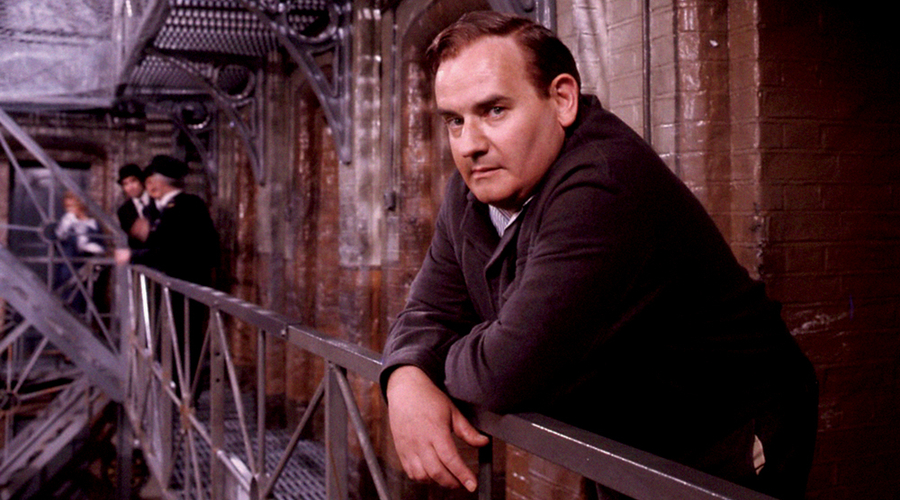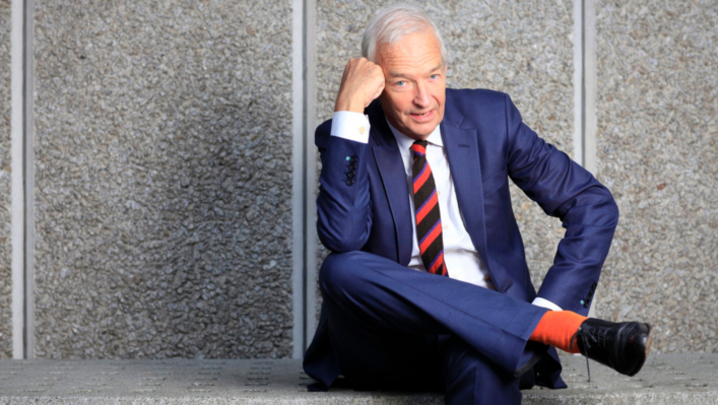Steve Clarke enjoys time with television’s immortal jailbird, Norman Stanley Fletcher
Imagine setting a television sitcom in today’s run-down, overcrowded British prisons. A non-starter or maybe the darkest of black comedies?
Half a century ago, while the UK lurched from one economic crisis to another, BBC Television was considering whether to make what became Porridge. There was an initial reluctance. So much so that, after introducing Cockney jailbird Norman Stanley Fletcher – Fletch – in the 1973 BBC Ronnie Barker series Seven of One, for an episode entitled Prisoner and Escort, writers Dick Clement and Ian La Frenais got so tired of waiting for the green light that they crossed the river to London Weekend Television and instead wrote crime caper Thick As Thieves, starring Bob Hoskins and John Thaw.
The LWT show was axed after one series. Thankfully, the BBC finally decided to go ahead with a sitcom based on a character who would quickly take his place in the pantheon of all-time comedy greats.
Even so, Clement and La Frenais, who had already discovered sitcom nirvana with The Likely Lads and its sequel, Whatever Happened to the Likely Lads?, expressed doubts about penning a prison-set comedy. “We went round prisons,” Clement once told the Radio Times, “and got very depressed because the reality is [that] they’re not fun.”
True, but they are places of confinement and, as every budding sitcom writer knows, being stuck in one place is often the starting point for comedy heaven. Many aficionados cite the Porridge episode A Night In, in which Fletcher and his cell mate, Lennie Godber (Richard Beckinsale), remain in their cell throughout the entire 30-minute programme, as the show’s zenith.
Porridge ran for three series with two Christmas specials, from 1974 to 1977. Throughout, Clement and La Frenais’ scripts were masterclasses in deft plotlines and comic dialogue. Here’s an example. Fletch: “That’s what you’ve got to tell yourself, you’re just having a quiet night in.” Godber: “Trouble is, I’ve got 698 quiet nights in to go.”
Porridge’s roots lie in kitchen sink drama – downbeat, naturalistic, gritty working-class sagas. The show was ideally suited to an era when an exhausted Britain was presided over largely by the equally worn-out Prime Minister Harold Wilson. In other words, just about as far as you could go from the feel-good factor of, say, Friends.
Peter Kay has claimed that Porridge introduced pathos to television sitcom. From the opening sequence of the sound of prison doors slamming shut and a judge sentencing Fletcher to five years’ bird (voiced by Barker, something he said he later regretted), audiences know they are in for something utterly different.
Barker was a familiar face to TV viewers, having moved from acting in repertory theatre to the warmer comic waters of the long-running BBC flagship comedy sketch show The Two Ronnies as Ronnie Corbett’s co-star.
The other members of the cast all play their parts to perfection: Fletch’s cell mate, the callow Godber, is brilliantly realised by the doe-eyed Beckinsale, then something of a TV sex symbol. There are memorable performances, too, from a young David Jason as the ageing lag, Blanco, while Fulton Mackay is terrific as Fletch’s arch enemy, the knowing Scottish warden Mr Mackay.
But make no mistake, this is Barker’s vehicle. He dominates every scene. Fletcher is a complex, almost Shakespearean character, whose humanity is apparent despite his guile, the minor scams and obvious criminality.
Genuine TV comedy icons don’t come along all that often. Ronnie Barker’s Norman Stanley Fletcher is one of them.
Finally, a word of praise for set designer Tim Gleeson. The Home Office refused to give the BBC permission to film Porridge in a real prison. With considerable ingenuity, Gleeson fashioned what became HMP Slade, a fictional Category C prison in Cumberland, from a disused water tank, once used for underwater filming, at Ealing Studios.
Porridge is available on BBC iPlayer.







